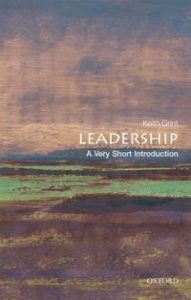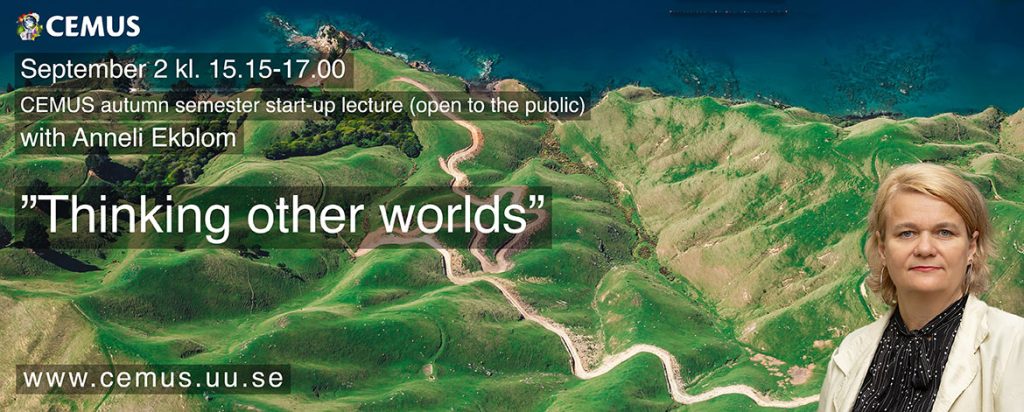Updated 2024-09-03 at 09:04 DM
Online material, reading, assignment and mandatory seminar
Your time planning for week 1
The course runs full time 100% 40 hours per week during 20 weeks during the autumn semester. You are responsible for your own time planning, study time, and that time will be different for different people with different study techniques, experience and pre-knowledge of issues in the course. A rough estimate of the 40 hours you have allocated for the course during week 1 are:
- Course info and getting started: 2 hours
- Semester start-up with Anneli Ekblom: 2 hours
- Online material, videos, audio, texts, activities: 16 hours
- Course books and your own reading: 10 hours
- Seminar assignment: 6 hours
- Mandatory seminar: 2 hours
- Summarizing the week Friday after seminar: 2 hours
Course goals examined week 1
The course goals that are examined during week 1 are:
On completion of the course, the student should be able to:
- account for climate variations over time, key climate science concepts and the most important conclusions of different research areas;
- account for climate change and leadership from an environmental history perspective;
Syllabus for Climate Change Leadership in Practice.
Course books and reading week 1
During week 1 you start reading the following books:
 Chapter 1-3. Grint, K. (2010). Leadership: a very short introduction. Oxford: Oxford University Press.
Chapter 1-3. Grint, K. (2010). Leadership: a very short introduction. Oxford: Oxford University Press.
 Chapter 1-3. Tamm J. W. (2020). Radical Collaboration: Five Essential Skills to Overcome Defensiveness and Build Successful Relationships (2nd ed.). London, UK: HarperCollins Publishers.
Chapter 1-3. Tamm J. W. (2020). Radical Collaboration: Five Essential Skills to Overcome Defensiveness and Build Successful Relationships (2nd ed.). London, UK: HarperCollins Publishers.
Tech and communication
To be able to study the course you will need a computer, tablet or smartphone with access to the internet. Seminars, workshop and online meetings will be easier if you have external headphones with a microphone. It’s important that you download Zoom here: https://www.uu.se/en/students/it-for-students/software/zoom and install it on the device you’re using for the course. You can test video and audio in the settings.
You can ask general questions at the end of mandatory sessions online, and course coordinator Daniel Mossberg is available every week day Monday to Friday via text/sms 073-065 02 28, call if there’s anything urgent. Emails will be responded to within one week at daniel.mossberg[a]cemus.uu.se.
Semester start-up lecture “Thinking other worlds” with Anneli Ekblom
To start off the autumn semester we welcome CEMUS friend and contributor Anneli Ekblom, Professor at the Department of Archaeology and Ancient History, Uppsala University. The lecture will be available live on Zoom and recorded for later viewing. Read more: https://www.cemus.uu.se/autumn-start-lecture-2024/
When: September 2 kl. 15.15-17.00
Zoom: https://uu-se.zoom.us/j/66235378067
Where: Hamberg Lecture Hall, Geocentrum, Villavägen 16, see map here: https://link.mazemap.com/vyZ4YHy1
How: For all CEMUS autumn semester students and open to the public, no registration needed

Written preparation assignment week 1
Your assignment in preparation for this Friday’s mandatory seminar is to write and submit categories and answers connected to this weeks online material and reading for the Climate Change Leadership https://www.jeopardy.com/ exam. During the seminar you will play the game in groups or individually. We will use the https://jeopardylabs.com/ web page if you want test it out.
- Find two different facts, phenomenons, theories, statements, conclusions that you found important and interesting during week 1 and summarize them into two catchy Jeopardy category (top boxes in the grid).
- For those two different categories write five different answers from easier to harder (100 easiest – 500 hardest). If possible add reference to the answer (name of author or speaker).
- Submit your document with two categories and five answers per category here at Studium: https://uppsala.instructure.com/courses/94667/assignments/279047 no later than September 6 at 12.00.
You can test play Jeopardy here: https://www.jeopardy.com/play/j6 and watch the show below.
Mandatory seminar week 1 – Friday September 6 at 13.15-15.00
Join Zoom-meeting here: https://uu-se.zoom.us/j/66235378067
- Survey on your study environment and situation
- Welcome to the seminar and introductions
- Leading and organizing a seminar, workshop, meeting
- “This is Jeopardy!” – time to play
- Reflection, wrap-up and next week
See you at 13.15!
Online material – video, audio, texts and activities
Climate variations over time
Download the free app here: https://www.deeptimewalk.org/kit/app/.
The Deep Time Walk is a 4.6 km walking audio history of life. This unfolding takes you from 4.6bn years ago to the present day, with each metre representing one million years. During the narrated walk you learn how our planet evolved over this vast stretch of time, including the accretion of the Earth from a disc of rocky debris, the formation of the oceans and atmosphere, the appearance of bacteria – the first life, then the first nucleated cells, and, eventually, multicellular organisms. As you walk you begin to recognise the long geological processes and self-regulating patterns that have produced the conditions for the evolution of life.
Read more: https://www.deeptimewalk.org/.
Environmental history – climate and leadership
See further reading in The best books on Environmental History recommended by John R McNeill.
The climate, earth system and possible futures
Also see World Resource Institute web page here: https://www.wri.org/
Mitigation and carbon budgets
Video from Climate Uncensored 2022.
For the latest updates see the Carbon Budget Report 2023 https://globalcarbonbudget.org/
Go to the Carbon Tracker Initiative Energy Transition Data Portal here: https://data.carbontracker.org/
Read more at the Carbon budgets and rapid energy transitions in Sweden page: https://www.cemus.uu.se/carbon-budgets/
See also 4 Charts Explain Greenhouse Gas Emissions by Countries and Sectors here: https://www.wri.org/insights/4-charts-explain-greenhouse-gas-emissions-countries-and-sectors
Adaptation and loss and damage
